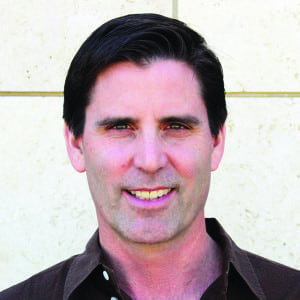Experts Debunk 100% Renewables Decarbonization
A group of 21 prominent energy and climate experts, writing in the June 19 edition of PNAS (“Proceedings of the National Academy of Sciences”) finds that the argument by Stanford University professor Mark Jacobson that the U.S. can end carbon dioxide emissions with an energy diet entirely of wind, solar, and hydro “between 2050 and 2055” does not hold water.

The PNAS article, with Christopher Clack of the National Oceanic and Atmospheric Administration’s operations in Boulder, Colo., as the lead author, finds that Jacobson’s work “has significant shortcomings in the analysis. In particular, we point out that this work uses invalid modeling tools, contains modeling errors, and made implausible and inadequately supported assumptions.” The accompany authors are a panoply of experts, including, among others, Jay Apt, an expert in the electric utility industry and Granger Morgan, both from Carnegie Mellon University; Ken Caldeira of the Carnegie Institution for Science; and Daniel Kammen of the University of California, Berkeley.
In a devastating critique, the PNAS article warns, “Policy makers should treat with caution any visions of a rapid, reliable, and low-cost transition to entire energy systems that relies almost exclusively on wind, solar, and hydroelectric power.” As I reported earlier, Jacobson’s “The Solutions Project,” says on its website, “The world can transition to 100% clean, renewable energy.” Jacobson’s project is funded by a range of renewable energy enthusiasts including the foundations of actor Leonardo DiCaprio and entrepreneur Elon Musk.
The PNAS article says the Jacobson analysis, citing errors, inappropriate methods, and implausible assumptions, “does not provide credible evidence for rejecting the conclusions of previous analyses that point to the benefits of considering a broad portfolio of energy system options. A policy prescription that overpromises on the benefits of relying on a narrower portfolio of technologies options could be counterproductive, seriously impeding the move to a cost effective decarbonized energy system.” The Clack paper concludes that “the weight of the evidence suggests that a broad portfolio of energy options will help facilitate an affordbale transition to a near-zero emission energy system.”
MIT’s Technology Review magazine quoted coauthor David Victor from the University of California, San Diego, that the Jacobson analysis relies on “wildly unrealistic expectations” and “massive misallocation of resources.” He is further quoted as saying, “That is both harmful to the economy and creates the seeds of a backlash.” Greentech Media quoted Clack that Jacobson’s “analysis ignores transmission capacity expansion, power flow and the logistics of transmission constraints. Similarly, those authors do not account for operating reserves, a fundamental constraint necessary for the electric grid.”
Jacobson and his team responded that Clack and his 20 co-authors offer a faulty, out-of-the-mainstream, critique, playing a fossil-and-nuclear card. “To the contrary,” they argue, “Jacobson et al. are in the mainstream, as grid stability studies finding low-cost up-to-100% clean, renewable solutions without nuclear or [carbon capture and sequestration] are the majority.”
—Kennedy Maize is a long-time energy journalist and frequent POWER contributor.